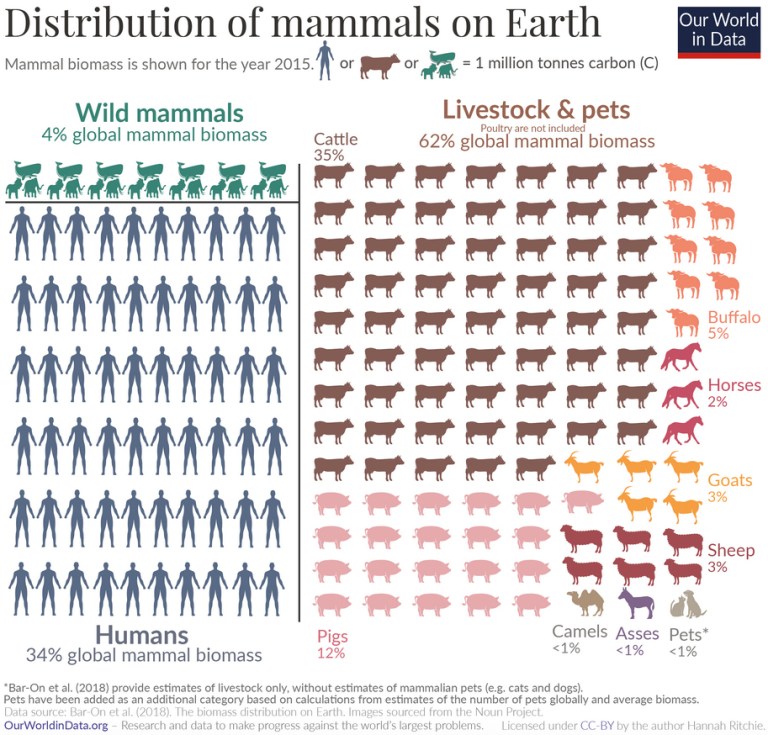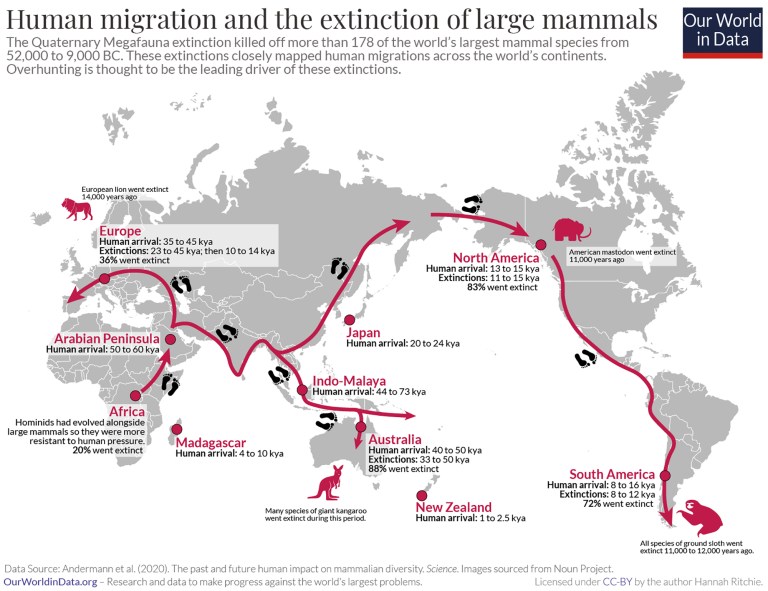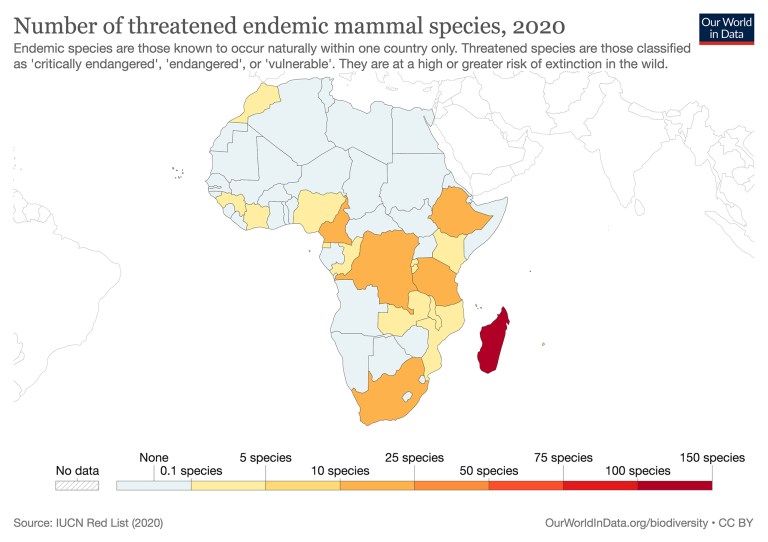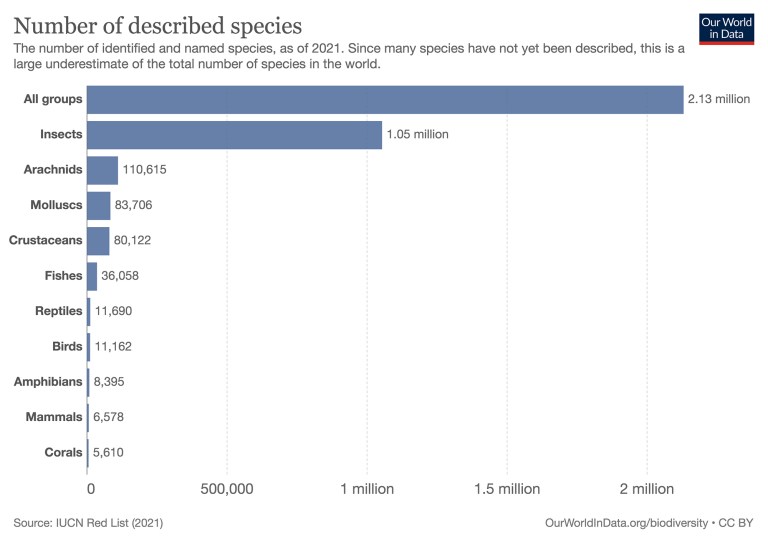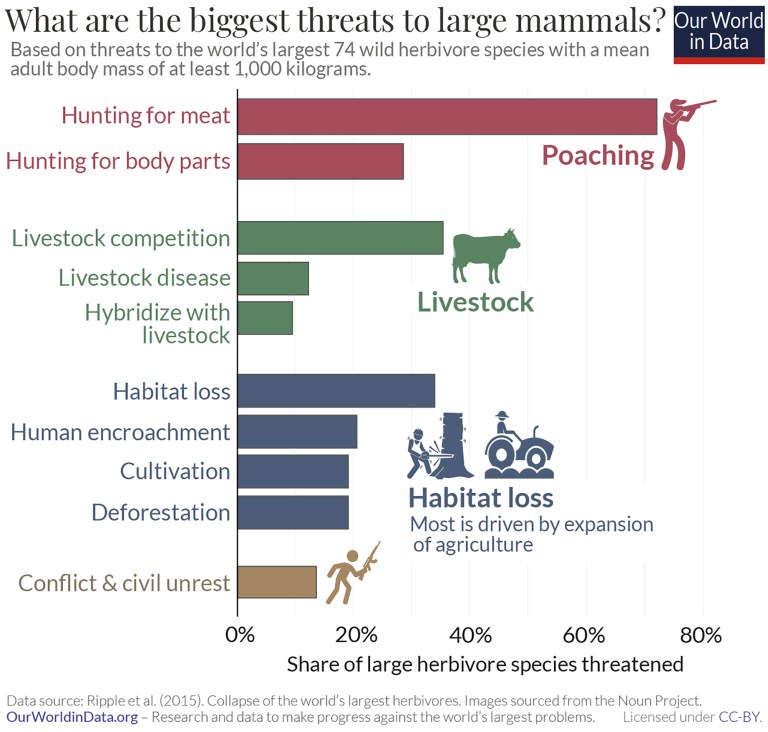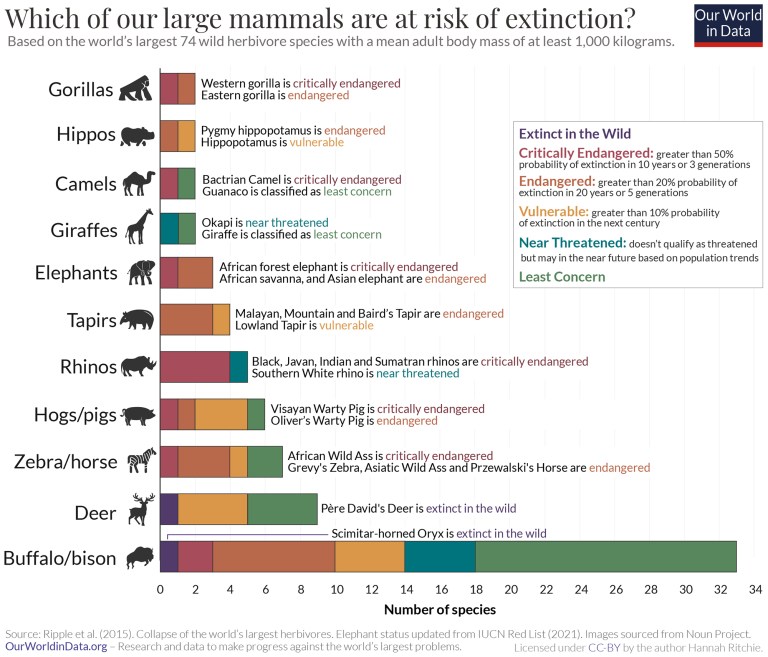
© Shutterstock
The populations of mammals, birds, amphibians, reptiles and fish have dropped by an average of 69% since 1970, worldwide, and in Latin America and the Caribbean, wildlife loss has reached 94%. WWF's Living Planet Report (LPR) 2022 monitors nearly 32,000 populations of 5,230 vertebrate species and launches an appeal for COP15 in December: "we expect an ambitious agreement" capable of reversing the loss of biodiversity.
"A double emergency, climate change and the loss of biodiversity threaten the well-being of current and future generations," said the director general of WWF, Marco Lambertini.
"The WWF is extremely worried by these new data - adds Lambertini - which show a devastating decline in wildlife populations, particularly in tropical regions that are home to some of the richest biodiversity areas in the world".
Among the species monitored by the Living planet report are the pink river dolphins of the Amazon, whose populations dropped by 65% between 1994 and 2016 in the Brazilian Mamirauá Reserve; eastern lowland gorillas, whose numbers have experienced an estimated 80% decline in Kahuzi-Biega National Park in Congo between 1994 and 2019; and sea lion cubs from southern and western Australia, whose numbers dropped by two-thirds between 1977 and 2019.
Overall, as a group of species, the greatest reduction is in the freshwater populations monitored, which have decreased on average by 83% due to habitat loss and barriers to migration routes.
According to the Living Planet Report, the main causes of the decline in wildlife populations are changes in land and sea use, over-exploitation of plants and animals, climate change, pollution and invasive alien species, threats from agriculture, hunting and poaching, and deforestation are particularly severe in the tropics; while pollution hotspots are particularly important in Europe. Furthermore, unless we limit global warming to below 2 ° C, or preferably 1.5 ° C, climate change is likely to become the main cause of biodiversity loss and ecosystem degradation in the coming decades.
The report indicates that only by increasing conservation and restoration efforts, producing and consuming, especially food, more sustainably and rapidly and deeply decarbonising all sectors will it be possible to mitigate the double crisis of climate and nature.
https://www.cdt.ch/news/mondo/in-50-ann ... ica-296458



